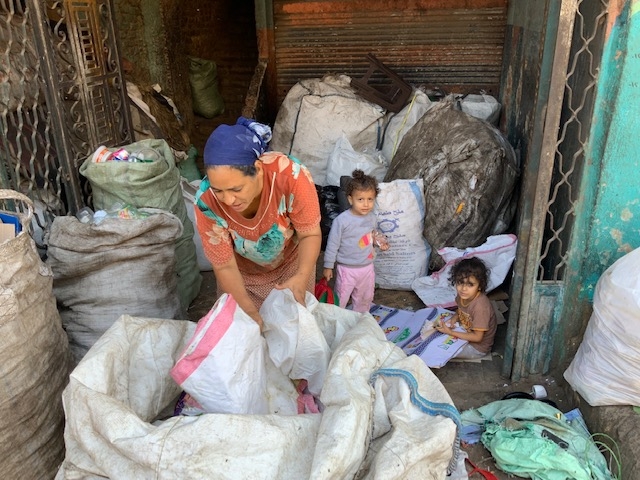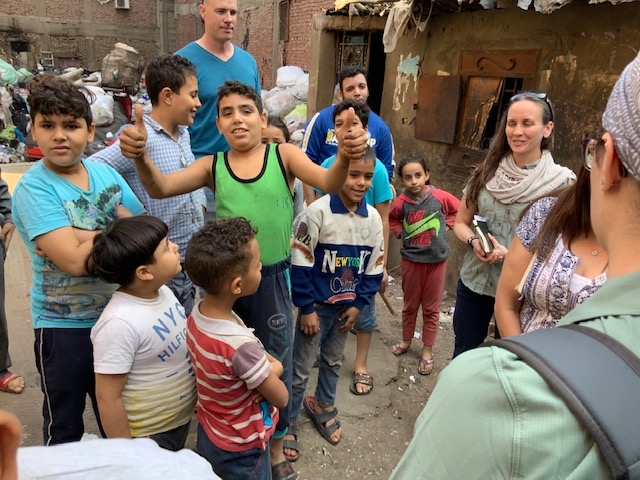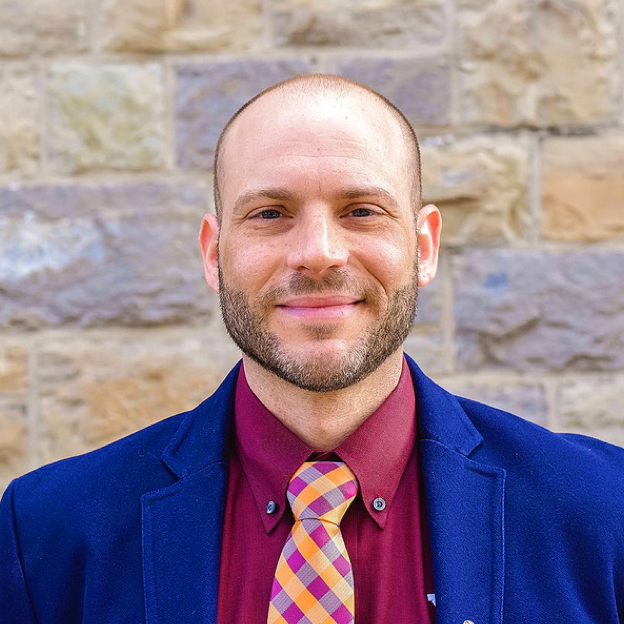Global Study, Part 3: How Egypt Changed My Sustainability Perspective
February 19, 2020

By Jerry Headley
In November 2019, my Executive Master of Natural Resources (XMNR) cohort traveled to Egypt on our Global Study to take an in-depth look at environmental sustainability issues in the Cairo and greater Nile River Valley regions. Egypt is an especially relevant country to study as it faces many sustainability challenges, including: overpopulation of urban areas, water scarcity, pollution, and an underdeveloped infrastructure, just to name a few. We had been studying sustainability issues for months in our classrooms on the Virginia Tech Center for Leadership in Global Sustainability (CLiGS) campus in Arlington, VA. Like the rest of my classmates, I was excited to be in the country and attempt to couple a sense of experience with my newfound knowledge. Little did I know just how important this would prove to be.
(A Zabaleen woman sorting through garbage to salvage recyclables. Photo credit: Jerry Headley)

There is a small city within Cairo’s metropolitan area called Manshiyat Naser, otherwise known as Garbage City. Its inhabitants, known as the Zabaleen, a derogatory term for “garbage people,” serve as Cairo’s informal waste recycling facility and have done so since the 1970s. The Zabaleen community, estimated at around 70,000, collect the daily trash of Cairo and bring it back to Garbage City for sorting and recycling. This community of mostly Coptic Christians, who migrated here from farmlands in search of work, have turned the recycling of Cairo’s garbage into the primary industry of their community.
I had read extensively about Garbage City, but wasn’t quite prepared for the sensory experience of actually being there. Trash was literally everywhere, but sorted surprisingly efficiently—given that the community has little to no formal recycling infrastructure. Metals, plastics, textiles—everything seemed to have a pile or truck designated for it. Even food waste had a home. It serves to feed pigs, which are then eaten by the Zabaleen community, or sold to slaughter houses to supplement income. Garbage City is one of the few places in Egypt with pigs, as to its majority Muslim population, pigs are forbidden for consumption.
(XMNR19 students meeting the Zabaleen. Photo credit: Jerry Headley)

As we walked, I saw young children in tattered, filthy clothing digging through trash heaps, and adults hard at work separating and categorizing debris. As one might expect, flies were everywhere, and so pervasive that at some point you just stop swatting them away, as it’s a futile effort. The air was filled with the smell of decaying food, pig feces, and melting plastic. When mixed with the heat of the arid desert climate, this was an environment my Western mind considered unlivable… yet to the Zabaleen, this is home. As we talked with community members, we kept making an unexpected observation: The Zabaleen seemed sincerely happy, or at the very least OK with their situation. I had expected to see and feel the misery and depression of what living in trash slums must be like, but it seemed every Zabal we spoke with was generally pleasant and almost proud to answer questions about their vocation and culture, especially if there was compensation involved. The Zabaleen’s lack of misery blew my mind.
How can this be? Do they not know how much better—or at least cleaner—life could be? Am I missing something here? Am I imposing my own Western view of a “good life” on them? If they’re OK with it, shouldn’t I be?
After being back in the U.S. for a few months, I still wrestle with these questions and images. I still have no concrete answers for myself concerning the “right” or “wrong” of the Zabaleen situation and lifestyle, but I feel my eyes have been opened. I’m beginning to understand that sustainability studies are not devoid of cultural context. Yes, academic study is completely valid and necessary; but the context of an issue is just as valid. I have learned that I must attempt to put my own Western bias and vision of functional sustainability aside, and try to evaluate a given issue from the standpoint of those living in it.
From a sustainability standpoint, the Zabaleen are one of the most functional and efficient recycling resources that Egypt has. Could their living situation be better? Absolutely. I’m sure they would agree with that; but it’s foolish of me as an outsider to come into their community after reading a handful of articles and pass judgment on their situation and the manner in which they embrace it. In the future, should I be lucky enough to attempt to help others in a situation different from my own, I will remember the Zabaleen and try to be cognizant of the biases I carry with me.

Jerry Headley is the Director of the Office of Veteran Services at Virginia Tech where he works on helping veterans and their families navigate the financial and social nuances of higher education. He holds a B.S in Film from Portland State University and an Executive MNR in Global Sustainability from Virginia Tech. Jerry is a U.S. Army veteran.


